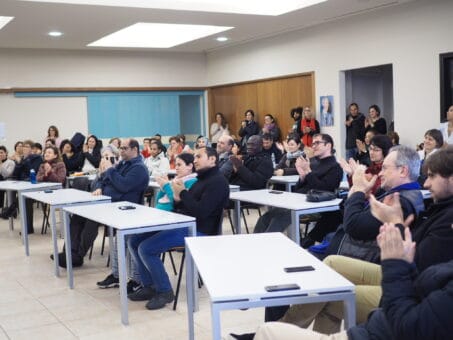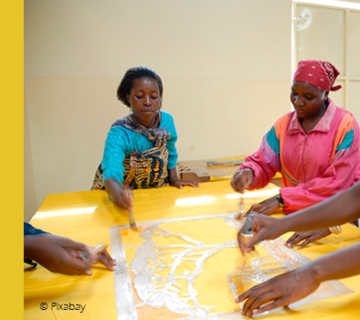Sophia University: teaching, research and unity
What are the future prospects for Sophia University? How will it respond to the educational needs of today’s young people? We asked the Rector, Professor Giuseppe ArgiAolas, appointed on 20 February by the Congregation for Catholic Education of the Holy See.
Professor Giuseppe Argiolas, who became the Rector of Sophia University Istituto universitario Sophia on 20 February, tells us about future plans for the University.
 Today Sophia is a university athenaeum. You have been the RECTOR of the university for a few months now. What does this mean and what changes will there be for the students?
Today Sophia is a university athenaeum. You have been the RECTOR of the university for a few months now. What does this mean and what changes will there be for the students?
“This is Sofia’s first ‘change of guard’, and it coincides with the conferral by the Congregation for Catholic Education of the title of “Rector” to the one who was previously the Dean. It is in recognition of how Sophia has developed over the last 12 years, for which we express our gratitude. Enormous challenges have been faced. Chiara founded this University in a flash, so all the teachers, administrative staff and students who were there at the beginning and those who joined later, have done an extraordinary job. We have just set up 4 Master’s degree courses with various specializations:
“Economics and management” (specialization in “Management for a Civil and Sustainable Economy”),
“Political Science” (specialization in “Fraternity in the res publica. Theoretical bases and operational lines” and specialization in “Governance of common goods”),
“Trinitarian Ontology” (specialization in “Theology” and specialization in “Philosophy”) and
“Culture of unity” (specialization in “Pedagogy of communion for a culture of peace” and specialization in “Communication processes with intercultural and interreligious mediation”). The Doctoral School is now a consolidated reality and we are developing a post-doctoral School at the service of young researchers.
Chiara Lubich saw Sophia as a global university, one single university with different locations. In Latin America we see the birth of Sophia LAC (Latin America and the Caribbean), but we are also seeing the first buds in Africa and Asia. Our task will be to consider these projects in the spirit of a unitarian Sophia that is expressed in the diversity of contexts in which it develops”.
The Covid-19 emergency has had quite an impact on the lectures: how is the teaching going ahead?
“Thanks to everyone’s commitment, we have been able to continue the lectures and exams and enable students to complete their academic studies using the tools currently offered by technology.
We have also arranged webinars dedicated to the Pandemic which offer our contribution in terms of reflection and action on such a delicate and urgent issue, and we have started with the different scientific disciplines by initiating dialogue on an interdisciplinary, international and intergenerational level. The new academic year starts as normal in a presential form and at the same time online, for students who will not be able to go to Sophia because of the international restrictions imposed due to Covid-19”.
What plans are there for the future? How do you see Sophia in 10 years?
“Sophia has managed to maintain its charismatic drive and be innovative whilst remaining faithfulness to the Charism. I think that we need to continue along this path: remain faithful to the Charism with its inherent specificity to read the signs of the times. This is what Pope Francis told us with three keywords – “Wisdom, Pact, Going Out” – which he addressed to us in our meeting with him last November, giving us a clear reference for our future. So I would like to develop Sophia on three fronts: didactics – going forward in the direction undertaken but with great attention and sensitivity so as to respond adequately to the educational needs of young people; research – valuing the development of the various disciplines and fostering an ever more marked interdisciplinary approach, indispensable in current scientific research; relationship with other agencies of the Focolare Movement and with other university and cultural institutions so that the service we offer for the common good may be ever more incisive. We will try to do this, together, in unity, with all the passion that we can express. The founding phase has finished, in some respects, and the consolidation and developments phases are just beginning. What must not cease is the charismatic thrust, this must continue, indeed it must always accompany us as the Guiding Star on the journey we have just begun and which we are called to travel together with many companions and with “joy, vision and decision”.
Lorenzo Russo


 Italiano
Italiano Español
Español Français
Français Português
Português




l’interdisciplinarietà per i giovani e la valorizzazione dei meno giovani sono certamente coltivati da “Sophia” .
Per questo grazie a tutte le lezioni e la didattica , la “conoscenza” che nasce con Sophia deve essere trasmessa ad “associazioni altre” per coltivare la nascita e la maturazione di processi comunicativi grazie alla cultura dell’Unità.